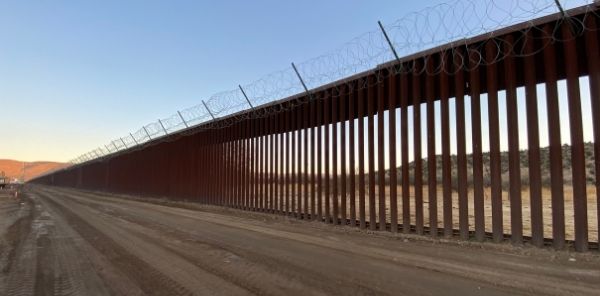NIJC Attorneys’ Observations During First Week of MPP Reimplementation Affirm Advocates’ Warnings: There is No Way to Fix the Inhumane “Remain in Mexico” Program
EL PASO, TEXAS (December 15, 2021) - Since December 9, National Immigrant Justice Center (NIJC) attorneys have attempted to offer consultations and interview accompaniment to individuals detained in Customs and Border Protection (CBP) custody in El Paso, Texas, awaiting processing under the Biden administration’s recently implemented Migrant Protection Protocols (MPP) program.
More than a dozen individuals were referred to NIJC for legal consultations prior to non-refoulement interviews with U.S. Citizenship and Immigration Services (USCIS) officers. During these interviews, the U.S. government claims to determine whether the individual faces a “reasonable possibility” of persecution in Mexico on account of their race, religion, nationality, membership in a particular social group, or political opinion, or of torture. A finding of that possibility should allow an individual to avoid return to Mexico for the duration of their immigration case. NIJC has only been able to attend three non-refoulement interviews despite efforts to attend many more. Of those three, only one person has been found to meet the non-refoulement standard, while the other two were returned to Mexico despite facing serious harm there.
This experience has confirmed what we feared: There is no such thing as meaningful access to counsel or humane treatment in any version of the MPP program, and it is impossible to fix a program built on an inhumane foundation.
NIJC observed the following due process and human rights violations in the Biden administration’s MPP program:
- People who spoke with NIJC attorneys were in acute psychological distress and exhibited signs of trauma. Nearly every individual reported that they had been directly harmed and/or threatened by state actors in Mexico.
- Due process violations were alarming:
- The current legal services format does not provide access to counsel. After responding to requests from individuals awaiting non-refoulement interviews and requesting that CBP facilitate a telephonic consultation, NIJC attorneys have spent hours waiting for calls from detainees that often never come. In multiple instances, attorneys have not been connected to people in CBP custody until after the non-refoulement interview has happened.
- In multiple instances, following a consultation with an individual, an NIJC attorney informed USCIS that they wished to be present at the non-refoulement interview. The government failed to contact the attorney at the time of the interview, however, and the individual was forced to proceed alone. In other cases, attorneys missed interviews due to last-minute scheduling by USCIS without prior notice to counsel.
- We met many people detained by CBP who were not provided with information about the MPP process or how to access counsel. Individuals told NIJC attorneys that prior to their non-refoulement interviews, they had received no information about MPP, the non-refoulement interviews, how to reach legal assistance, or even their immigration identification numbers. Several people told NIJC attorneys they had been instructed to sign documents without understanding the content of those documents.
- Several people should have qualified as vulnerable individuals exempt from the MPP process, however, CBP officials had failed to properly question them to elicit this information. Within the small group contacted by NIJC, we identified and escalated cases for exemption that included two LGBTQ individuals, an indigenous language speaker, a person with cancer, and a person with a traumatic brain injury.
- The current legal services format does not provide access to counsel. After responding to requests from individuals awaiting non-refoulement interviews and requesting that CBP facilitate a telephonic consultation, NIJC attorneys have spent hours waiting for calls from detainees that often never come. In multiple instances, attorneys have not been connected to people in CBP custody until after the non-refoulement interview has happened.
- Individuals faced inhumane and dangerous conditions typical of CBP detention centers:
- One individual described being held in a cell in close proximity with approximately 240 individuals, dozens of whom were sick.
- Several individuals explained that they had been transferred from other detention centers near the border and not been given access to hygiene supplies and reported not having showered or brushed their teeth in more than a week.
- Individuals reported they had no access to phone calls and were unable to reach their families to let them know their status or location.
- One man shared with an NIJC attorney that his “lungs hurt” and he had been requesting medical attention from CBP for more than 10 days but had been denied access to a doctor. An NIJC attorney participated in his non-refoulement interview and observed him coughing nearly uncontrollably throughout the 72-minute interview.
- One individual described being held in a cell in close proximity with approximately 240 individuals, dozens of whom were sick.
Continuing to return people to Mexico, where they face danger at the hands of state actors, violates the U.S. government’s international and domestic human rights obligations. The Biden administration must end both MPP and Title 42 and redirect its energy toward restoring asylum processing at U.S. ports of entry.

